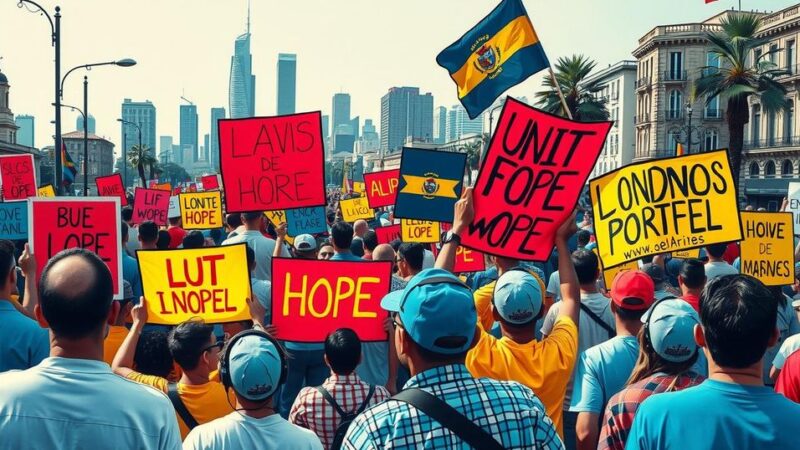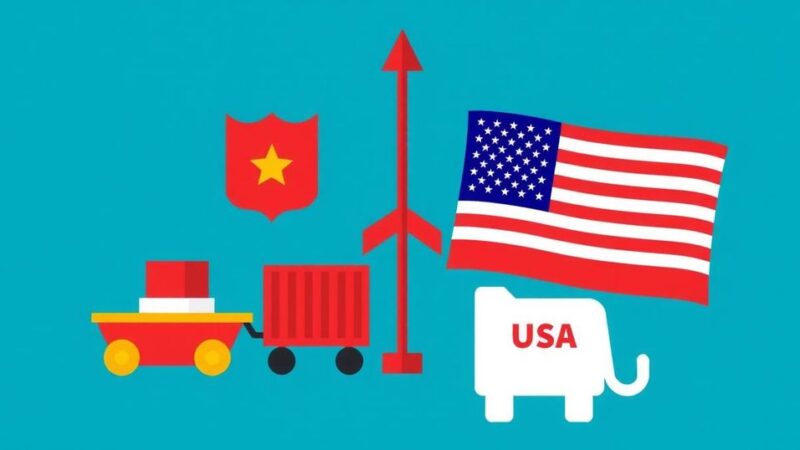India must pursue a more equitable global economic framework rather than unfavorable trade agreements with the U.S. The Trump administration’s trade policies and rhetoric have overlooked India’s small share in global exports and the negative impact of reduced tariffs on critical sectors like agriculture. India must prioritize multilateral negotiations and address systemic inequality to navigate the challenges posed by unilateral actions from developed nations.
India’s economic future necessitates advocating for a more equitable global economic framework rather than engaging in unfavorable agreements with a mercantilist United States. The U.S. has shifted towards unilateralism, abandoning its commitment to the rules-based trade liberalization established post-World War II. This has not only disrupted global trade but also created a dynamic where nations like India must respond strategically to safeguard their interests amidst changing global realities.
The Trump administration’s aggressive trade rhetoric has specifically targeted India, accusing it of high tariffs. However, data indicates that with merchandise exports valued at $431.5 billion in 2023, India’s share of global exports remains below 2%, starkly contrasting with the more significant shares of both China and the United States. This evidence negates any claims that India has prospered through exploitative trade practices.
Analyzing bilateral trade shows India’s modest impact on the U.S. trade deficit, contributing only $45.7 billion compared to major players like China and the European Union. As India prepares to negotiate a trade deal with the U.S., there are indications that tariff reductions may be expected. However, the U.S. products intended for India’s markets are often priced beyond the reach of the average Indian consumer, diminishing the effect of potential tariff cuts.
The U.S. focus on India’s agricultural sector, despite America’s agricultural subsidies, presents a significant challenge for India, where farmers vastly outnumber those in the U.S. Reducing tariffs on U.S. agricultural products could jeopardize India’s food security and economic stability, as American subsidies would undercut local producers.
India’s previous leadership successfully championed the interests of the Global South during the Doha Round of WTO negotiations. It is essential that India refocuses its approach, prioritizing multilateral agreements over bilateral negotiations, thus ensuring that broader concerns of inequality and fairness in global trade are addressed.
The imbalance in development between the wealthy and impoverished sectors in India has paradoxically pushed policymakers towards further integration with advanced economies, often at the expense of marginalized communities within the country. Leaders must reclaim the narrative that prioritizes fair economic practices rather than yielding to pressures from developed nations to decrease protections for the vulnerable.
Raising concerns about systemic inequalities in the global economic order will not resonate with financial markets but is crucial for mobilizing support among the broader population that has been neglected in the current framework. India must advocate for a more just global economic order and recognize that its prosperity cannot be rooted in distress deals with nations that prioritize their mercantilist agendas over equitable growth.
In order to facilitate a meaningful shift in the global economic landscape, India needs to confront the established order and emphasize inequality’s systemic causes. This effort will require a significant transformation in both policy and political will, urging a spotlight on the economic disparities that persist within and beyond its borders. The current political elite must endeavor to engage with these issues genuinely, rather than dismissing them with superficial welfare initiatives.
In conclusion, India’s economic progress hinges on its ability to advocate for a more equitable global economic order rather than making concessions to the mercantilist tendencies of the United States. By harnessing historical leadership roles within international trade dialogues and addressing systemic inequalities, India has the potential to reshape its economic destiny. The focus must shift toward protecting vulnerable populations domestically while simultaneously challenging unfair practices on a global scale. A proactive and inclusive approach to trade will be vital for securing a fairer future for all sectors of Indian society.
Original Source: www.hindustantimes.com






